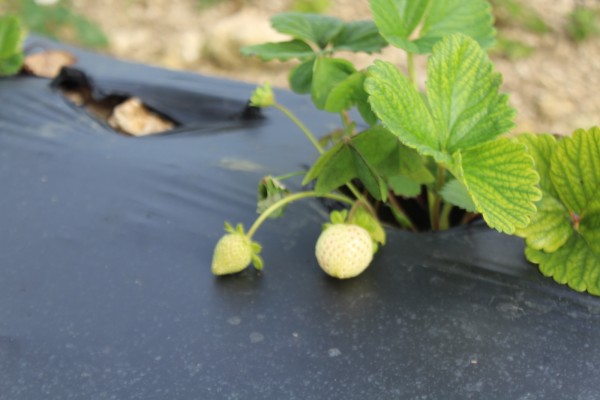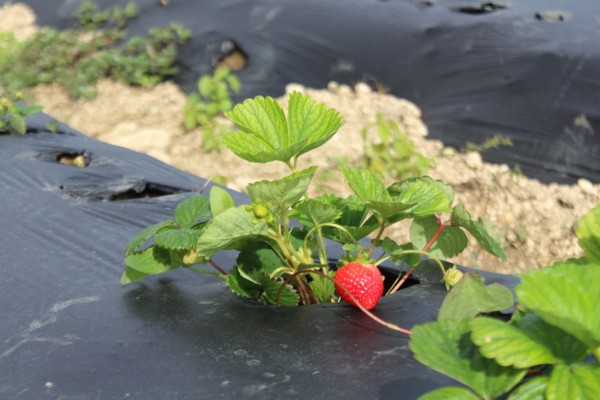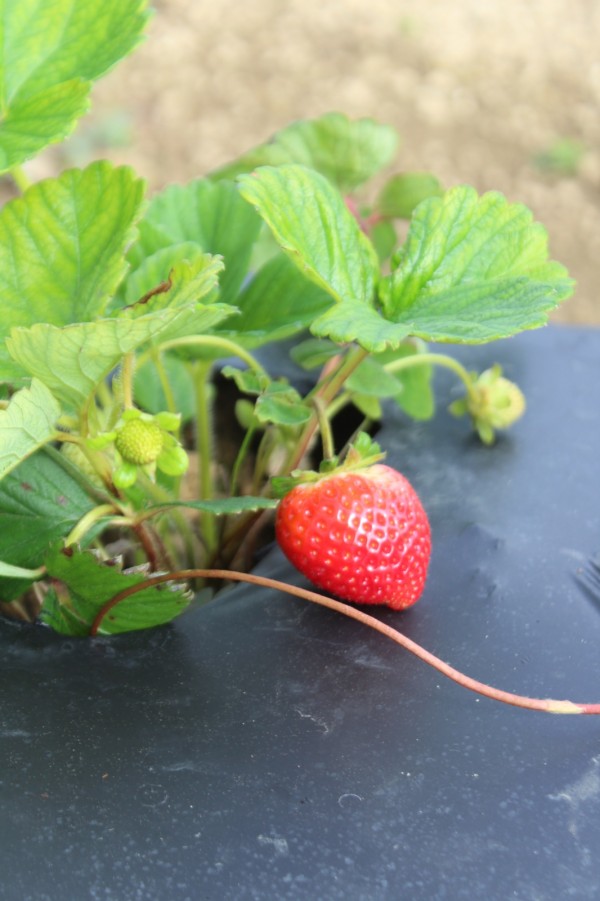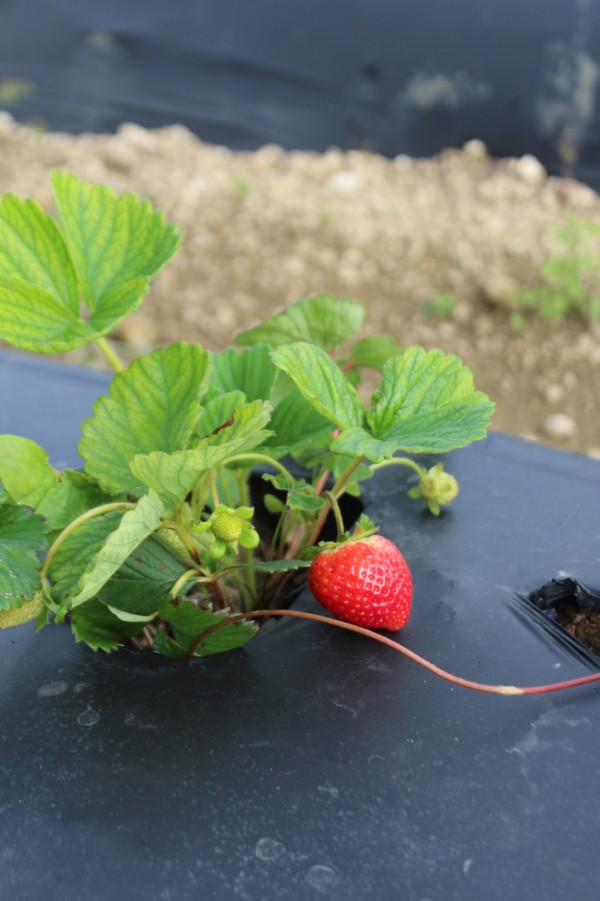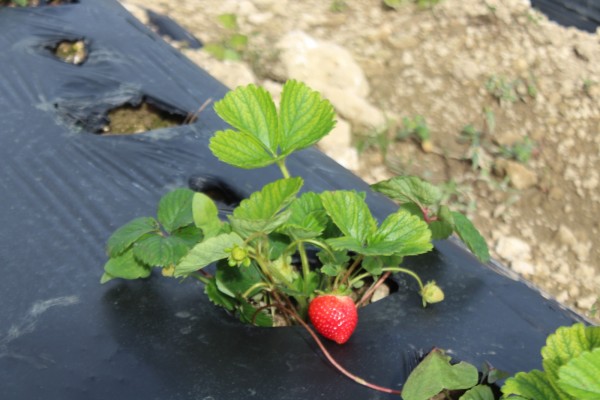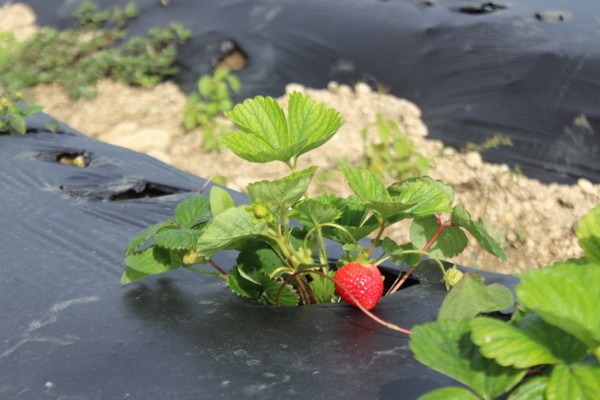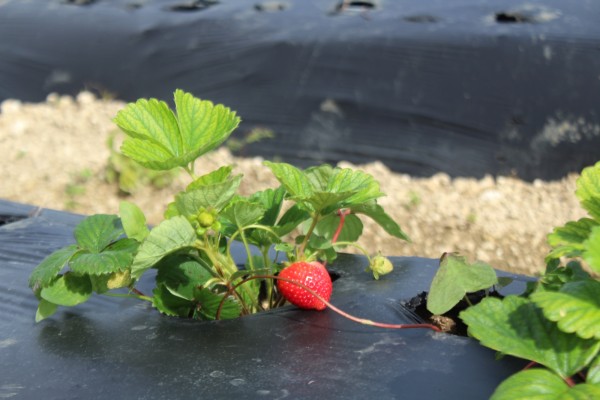BAMSI Explores Promising Strawberry Cultivation
Nassau, Bahamas, February 21 st , 2024 – THE Bahamas Agriculture and Marine Science Institute (BAMSI) has ventured into strawberry cultivation, eyeing not only a good market but also the opportunity to train Bahamians in harvesting and grading techniques of the berries, BAMSI Farm Manager Ayrett Lightbourne said.
Lightbourne revealed that following the successful planting season, there are plans for a possible expansion next year in acreage.
Reflecting on the historical aspect of strawberry cultivation in the Bahamas, Mr. Lightbourne said, "Strawberries were grown here some 25 years ago, but it's not commonly known. There's a vast array of crops that Bahamians aren't familiar with that we are able to grow in the Bahamas, and we're exploring these opportunities.
Addressing the challenges inherent in strawberry farming, Mr. Lightbourne emphasized the need to be vigilant against root diseases, urging careful treatment before planting. He stressed the importance of a robust spray programme to combat fungal diseases, acknowledging the intricacies involved in successful strawberry cultivation.
One key aspect highlighted is the seasonal nature of strawberry growth. "They can only grow in the winter, requiring cold temperatures to thrive. By the end of March or early April, they stop producing flowers and instead put out suckers, which we utilize for the next season," he
explained.
Despite recent setbacks due to heavy rains in December, which led to the loss of a part of the field, Mr. Lightbourne remained optimistic about the venture. "We started harvesting last week, and despite the challenges, the quality of our strawberries remains high. It's a learning process, and we're adapting as we go.”
In addition to providing a good market for strawberries, the initiative is seen as a valuable training opportunity for BAMSI farm personnel. Mr. Lightbourne outlined essential aspects such as fertilizer practices, frequency of irrigation, disease recognition, and prevention methods. The goal is not only to enhance the quality of strawberries, but also to empower individuals with the skills needed for successful cultivation.
Highlighting the significance of locally grown produce, Mr. Lightbourne drew attention to the uncertainties associated with imported strawberries. "When strawberries are imported, you don't know the conditions they've been subjected to or how long they've been in containers. In the Bahamas, we harvest just days before shipment, ensuring freshness."
The focus for this growing season extends beyond strawberries, encompassing crops like romaine lettuce, iceberg lettuce, bok choy, and celery. Lightbourne said his aim is to sensitize people to agriculture’s economic potential during the winter months. He emphasized that millions of dollars can be generated through strategic cultivation.
The underlying idea is not merely to demonstrate that these crops can be grown here in the Bahamas, but to highlight that it can be done profitably. He acknowledged the need to address the cold chain logistics, ensuring that produce remains cold from harvest to storage,
shipping, and delivery to vendors — a crucial step in transforming this niche area in the Bahamian agricultural landscape.


